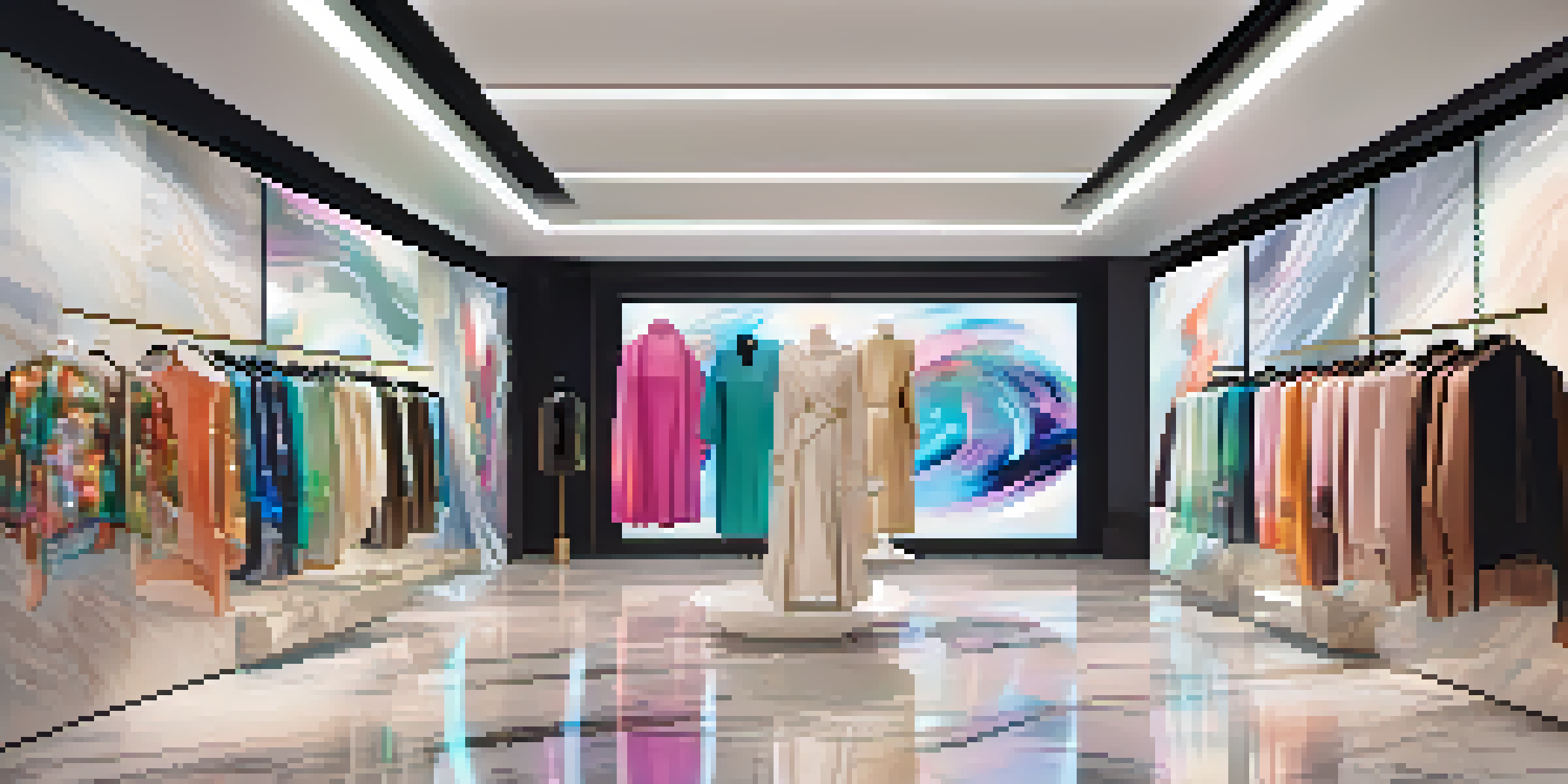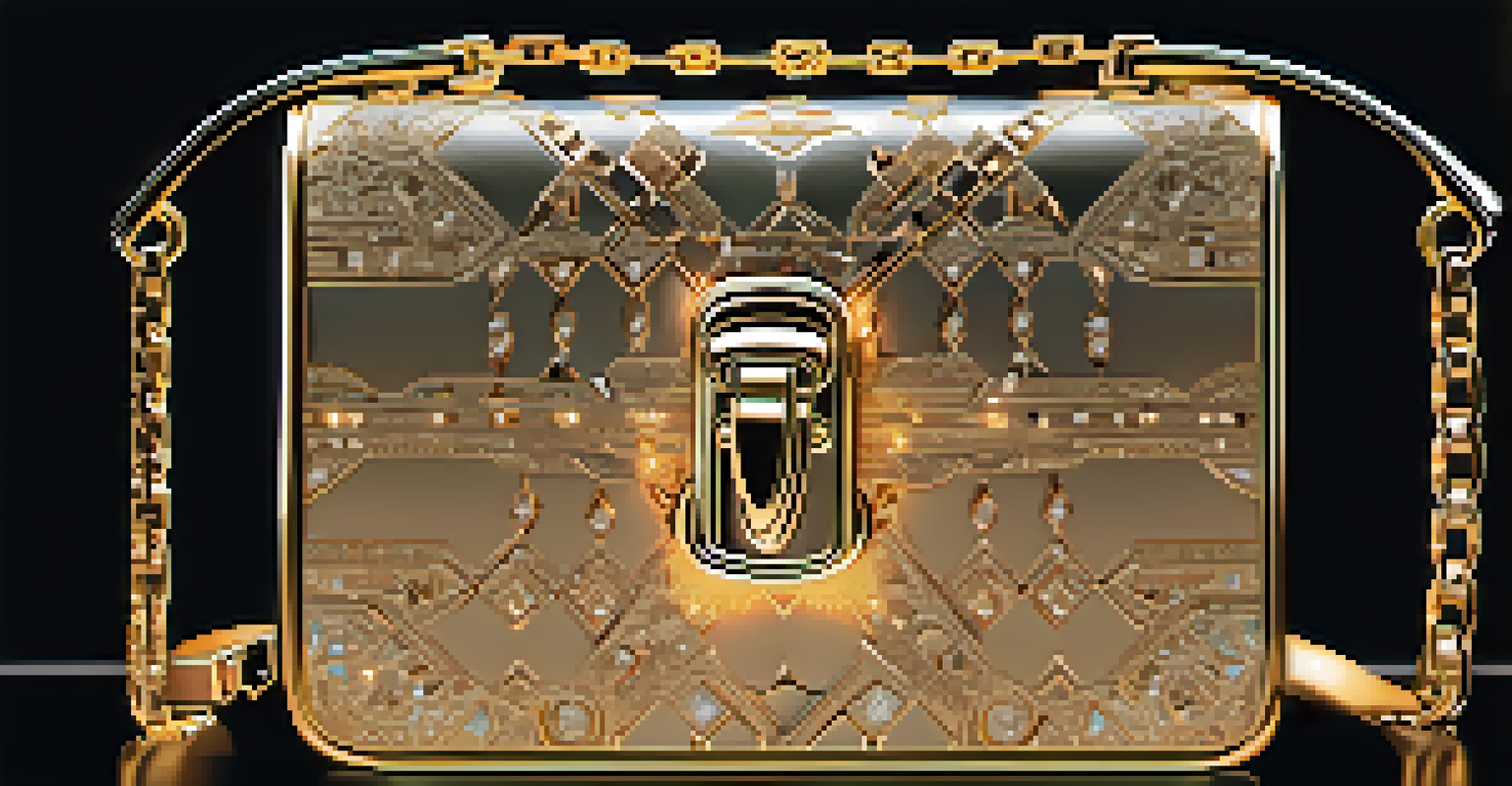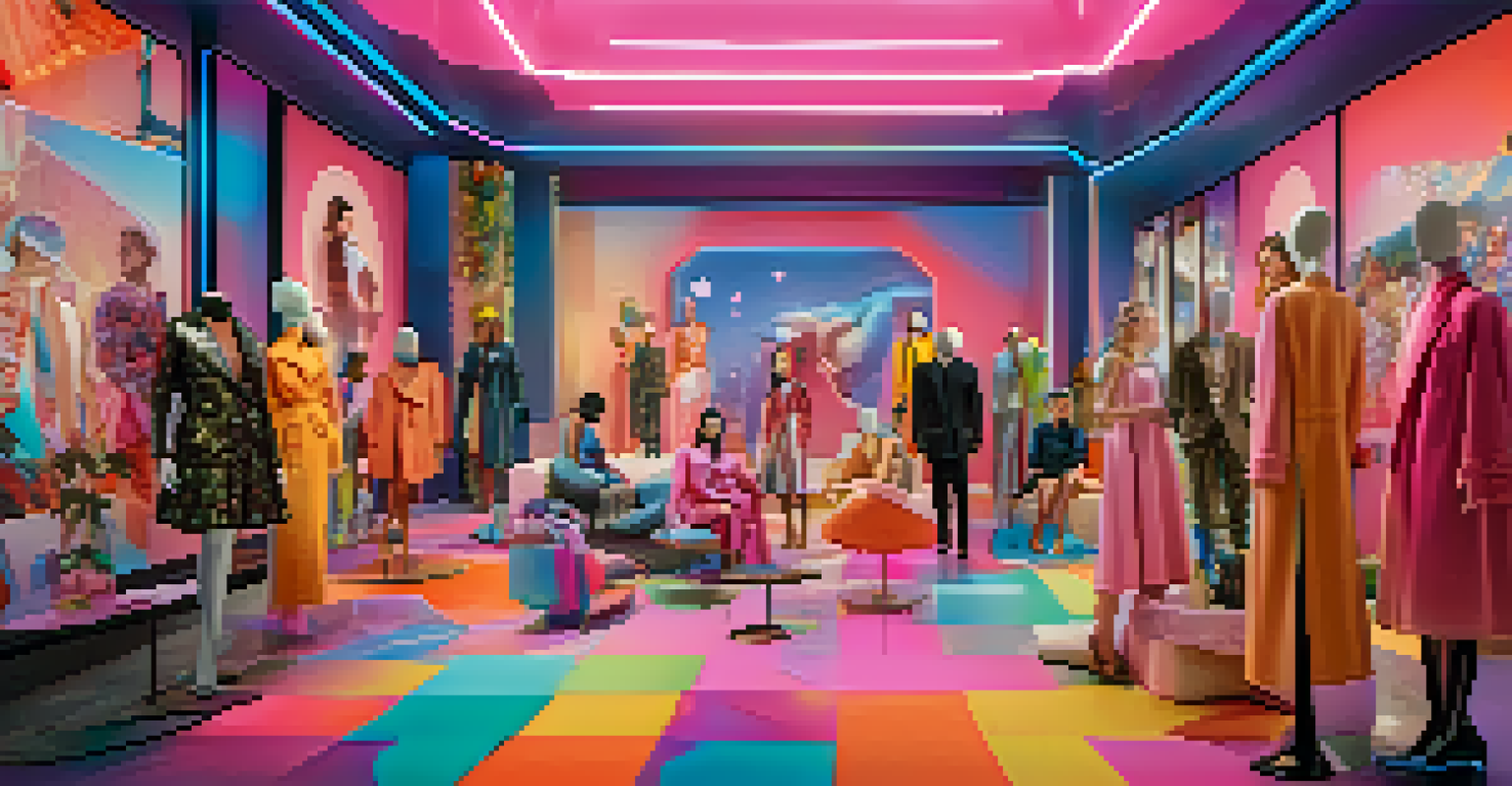The Impact of NFTs on Luxury Fashion Brands and Consumers

Understanding NFTs and Their Appeal in Fashion
NFTs, or non-fungible tokens, are unique digital assets verified using blockchain technology. Unlike traditional fashion items, NFTs offer a sense of ownership and scarcity that appeals to both brands and consumers. This uniqueness makes them particularly attractive in the luxury sector, where exclusivity is a key value proposition.
Digital assets like NFTs offer a new frontier for the luxury fashion industry, merging creativity with technology in ways we've never seen before.
For luxury fashion brands, NFTs provide a new avenue for creativity and expression. They allow designers to showcase digital fashion pieces that can exist solely in the virtual realm, expanding the boundaries of what fashion can be. Consumers, on the other hand, are drawn to the idea of owning a piece of digital art or fashion that no one else can replicate.
This intersection of technology and fashion not only enhances brand storytelling but also engages a tech-savvy audience. As more consumers become familiar with blockchain and digital currencies, the appeal of NFTs is expected to grow, creating exciting opportunities for luxury brands.
How Luxury Brands Are Embracing NFTs
Luxury fashion brands are beginning to see NFTs as more than just a trend; they view them as a vital component of their future strategy. For instance, major brands like Gucci and Prada have launched limited-edition NFT collections, merging digital art with fashion. These initiatives not only attract younger consumers but also reinforce their status as innovators in the industry.

By incorporating NFTs into their marketing strategies, brands can create exclusive experiences that elevate consumer engagement. For example, purchasing an NFT could grant access to virtual fashion shows or exclusive events, enhancing the overall customer experience. This shift in focus helps brands maintain a competitive edge in a rapidly evolving marketplace.
NFTs Redefine Luxury Fashion
Luxury brands are leveraging NFTs to create unique digital assets that enhance exclusivity and consumer engagement.
Furthermore, NFTs provide a new revenue stream for luxury brands. As consumers are willing to invest in digital assets, brands can capitalize on this trend by offering unique digital collectibles alongside their physical products.
The Benefits of NFTs for Luxury Consumers
For consumers, owning an NFT from a luxury brand can elevate their status and identity in the digital world. It’s a way for fashion enthusiasts to showcase their taste and exclusivity, much like owning a rare handbag or piece of jewelry. The digital ownership of these NFTs can also serve as a badge of honor within social circles.
The future of fashion is digital, and NFTs provide a unique opportunity for brands to redefine ownership and exclusivity.
Additionally, NFTs can offer consumers more than just ownership; they can provide a sense of community. Many NFT projects include exclusive online forums or social media groups where owners can connect, share their experiences, and even collaborate on future designs. This sense of belonging can enhance the overall enjoyment of luxury fashion.
Furthermore, the resale value of NFTs can be appealing to consumers looking for investment opportunities. Just as vintage designer pieces can appreciate over time, certain NFTs have shown potential for significant value increases, making them attractive to savvy investors.
Challenges Luxury Brands Face with NFTs
Despite the exciting potential of NFTs, luxury brands face several challenges in adopting this new technology. One of the biggest hurdles is the environmental impact associated with blockchain technology, which has raised concerns among eco-conscious consumers. Brands are now tasked with finding sustainable solutions that align with their values and the expectations of their clientele.
Another challenge is the need for education around NFTs for both brands and consumers. The concept of digital ownership can be complex, and many consumers may feel hesitant to invest in something they don’t fully understand. As a result, brands must prioritize transparency and education in their NFT initiatives to build trust and confidence.
Consumer Behavior Shifts to Digital
Younger consumers are increasingly drawn to NFTs, prioritizing authenticity and personalized digital experiences in their luxury purchases.
Lastly, the fast-paced nature of the digital landscape means luxury brands must stay ahead of trends. As the NFT space continues to evolve, adapting to new technologies and consumer preferences will be crucial for maintaining relevance in the market.
Consumer Behavior Shifts in the Luxury Market
The rise of NFTs has prompted a shift in consumer behavior within the luxury market. Younger generations, particularly Gen Z and Millennials, are increasingly drawn to digital experiences and assets. These consumers prioritize authenticity and innovation, making NFTs an appealing option in their luxury shopping journey.
As more consumers embrace digital ownership, the demand for unique, personalized luxury items is on the rise. Brands must adapt by offering products that cater to this desire for individuality, whether through customizable NFTs or limited-edition releases. This shift not only enhances brand loyalty but also fosters a deeper connection between consumers and the brands they support.
Ultimately, the integration of NFTs into luxury fashion signals a broader cultural shift towards digital lifestyles. As consumers continue to navigate this new landscape, brands will need to stay attuned to their evolving preferences and behaviors.
The Future of Luxury Fashion and NFTs
Looking ahead, the future of luxury fashion intertwined with NFTs appears promising. As brands experiment with digital fashion shows, virtual try-ons, and exclusive NFT drops, they’re redefining the shopping experience for consumers. This innovative approach could set new standards for engagement in the luxury sector.
Moreover, the potential for collaborations between fashion brands and digital artists is an exciting frontier. Such partnerships can result in unique cross-industry products that captivate audiences and create new revenue streams. As creativity flourishes in the NFT space, we can expect to see even more groundbreaking collaborations.
Challenges of NFT Adoption
Luxury brands face hurdles such as environmental concerns and the need for consumer education to successfully integrate NFTs into their strategies.
As the technology continues to evolve, it will be fascinating to watch how luxury brands adapt and innovate. The ongoing dialogue between tradition and modernity will shape the future of luxury fashion in an increasingly digital world.
Conclusion: NFTs as a Catalyst for Change in Fashion
In conclusion, NFTs have become a powerful catalyst for change within the luxury fashion landscape. By embracing this technology, brands are not only enhancing their storytelling but also engaging a new generation of consumers. The unique aspects of NFTs allow for novel experiences that traditional fashion cannot provide.
While challenges exist, the opportunities for innovation and growth are vast. As both brands and consumers navigate this new terrain, the potential for collaboration and creativity is limitless. NFTs are shaping the future of luxury fashion, inviting everyone to explore the exciting possibilities ahead.

Ultimately, as we embrace this digital evolution, the relationship between fashion, technology, and consumer engagement will continue to evolve, paving the way for a vibrant and dynamic future.